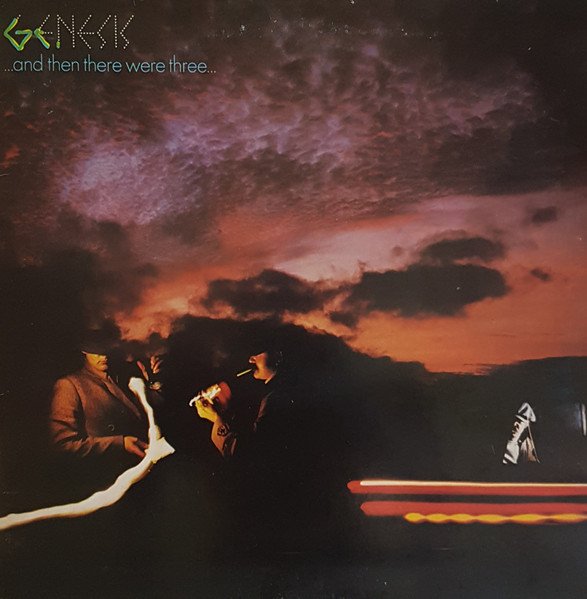CATALOG CRAWL: GENESIS, Part 4 (1977-1980)
A few years after Genesis established themselves as self-sufficient without Peter Gabriel, they had to brace themselves for another lineup-changing loss in guitarist Steve Hackett. The band was still on shaky ground in terms of finances and stability within the world of rock music - and they also felt the need to start moving away from the progressive rock they had established their name with in favor of a sound that would be more compact and direct.
That's a lot of challenges to cope with at once... and yet Genesis managed to land on their feet as represented by the successful trio of albums below. This installment of Catalog Crawl covers the creative regrouping that Genesis did at the end of the '70s through a double-live album that captured the last of the Hackett era and two studio albums that found them reworking their sound in a way that prepared them for a level of international success that they probably couldn't even conceive of during the era they were recording them.
Members: Phil Collins (lead vocals, drums), Tony Banks (keyboards, vocals), Mike Rutherford (bass, guitar, vocals), Steve Hackett (lead guitar - album 1), Chester Thompson (drums - album 1), Bill Bruford (drums - album 1)
SECONDS OUT (1977): this generously stuffed double-live album offers a solid representation of Genesis in the Trick/Wind era, supplemented by a second drummer in jazz pro Chester Thompson (Bill Bruford also pops up on a taut version of "The Cinema Show"). Hackett left during the mixing phase, which might explain why his guitar is low in the mix at points, but the sound quality is impressive: it was recorded primarily before a reverent audience in France and boasts an unusually slick and detailed mix for a live album. Highlights include a funky, expansive take on "I Know What I Like In Your Wardrobe," an atmospheric rendition of "Firth of Fifth" that showcases Hackett's expressive leads and a side-length "Supper's Ready" that transforms the pieced-together songcraft of the studio version into a flowing, dynamic concert showpiece. The addition of Thompson beefs up the percussive edge: listen for the impressive fills he adds to the end of "Afterglow" and his bracing drum duet with Collins on "Los Endos."
...AND THEN THERE WERE THREE... (1978): With Hackett gone, the group begins its shift away from prog, paring down the epics and focusing on songcraft over instrumental excursions. The absence of Hackett explains the distinct cutback in guitar solos but Rutherford creates ornate bass and guitar textures to back up Banks' keyboard-as-lead-instrument approach and Collins' drumming often adds surprisingly tricky jazz rhythms. Banks contributes the proggiest material via dynamic pieces like "Burning Rope" and "The Lady Lies" but is also capable of an intimate ballad like "Undertow," a moving song about emerging from grief. Rutherford-penned highlights include "Say It's Alright Joe," a torchy ballad with surprise driving prog bridges, and the pastoral-goes-panoramic sweep of "Snowbound." Collins's contribution as writer comes in group collaborations like "Scenes From A Night's Dream," a delightful tune that marries prog showmanship to pop structure, and surprise hit "Follow You, Follow Me." The latter, a ballad where the ornate arrangement is purely geared towards melodic hooks and the lyrics are direct and personal, is the kind of song that would dominate the band's future.
DUKE (1980): prog is as much a mindset as it is a genre and this album shows that. The band's prog side is represented by opening and closing pieces drawn from what was originally a longer continuous song suite: The linked introductory salvo of "Behind The Lines," "Duchess" and "Guide Vocal" and album closer "Duke's Travels/Duke's End" all offer a powerhouse display of chops, particularly fierce drumming from Collins, and arrangements full of atmosphere and surprise twists. The album's opposite pole is represented by strong standalone hit singles: "Misunderstanding" found Collins transforming the pain of his divorce into a combination of blue-eyed soul and FM rock while "Turn It On Again," another extract from the earlier epic suite, finds the band applying its prog chops to a dynamic piece that offsets its quietly disturbing lyric about a deranged celeb-obsessive with riff-heavy arena rock. The satisfying blend of extremes is furthered by other highlights like the lush ballad "Heathaze" - and this is the album where you really hear Collins becoming a pop force as both writer and vocalist.





